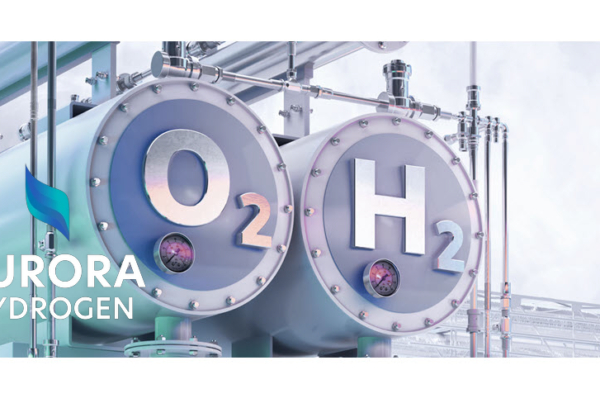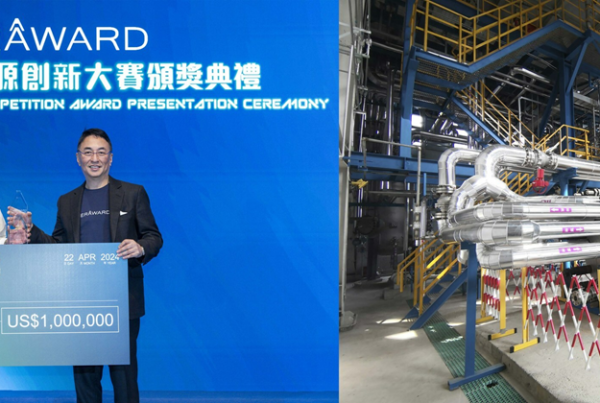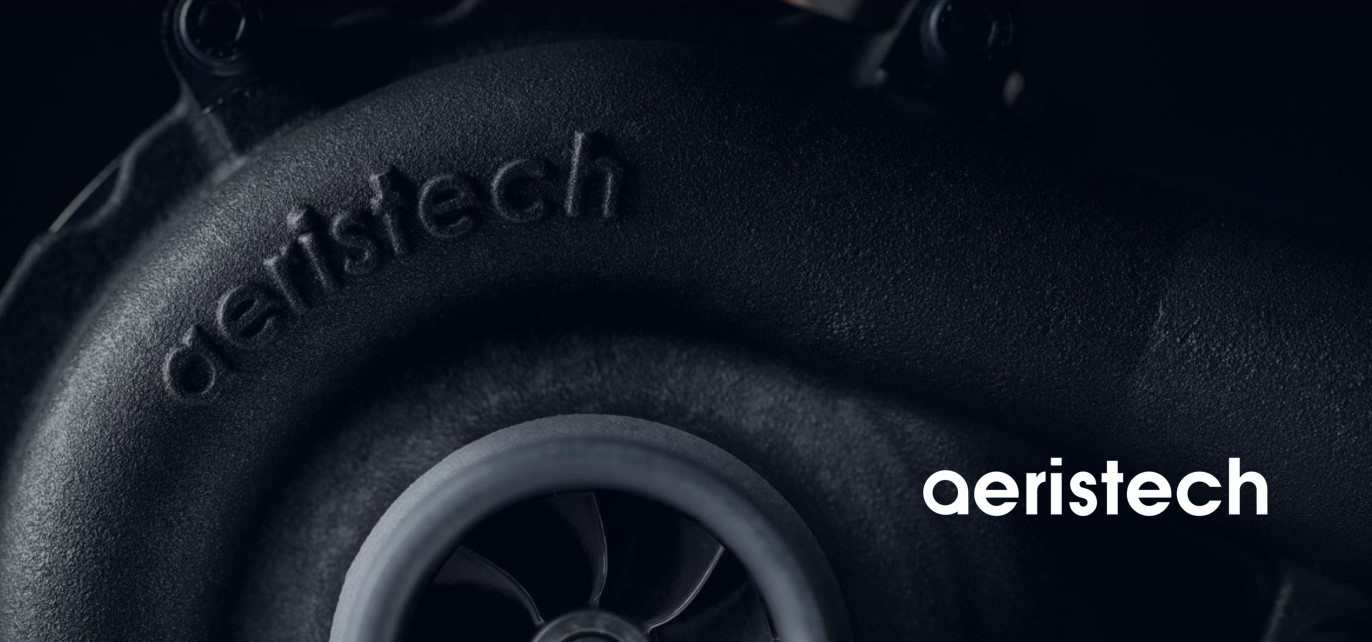
With their technology and products making waves across several industries including automotive, maritime, and aerospace to name a few, FuelCellsWorks had the pleasure of sitting down with Aeristech’s CEO and Head of Engineering and dig deeper into their success. During our talk we learned about the key areas where they are innovating and how their technology can help improve the performance of hydrogen-powered vehicles today.
Deploying hydrogen as a fuel to support the decarbonisation efforts observed around the world calls for, among others, research and development efforts across the entire value chain. It also requires companies supplying parts and materials to Original Equipment Manufacturers (OEMs) to innovate, expand, or modify their portfolio to support the market changes and the deployment of new technologies.
Aeristech is a company based in the UK, providing OEMs with a range of solutions designed to meet their needs for the commercialization of products that improve performance and reduce carbon emissions. Aeristech’s patented motor and control architecture delivers a radical improvement in motor speed and efficiency. Its portfolio includes electric superchargers and fuel cell compressors. Their fuel cell compressor design enables higher output from hydrogen fuel cells increasing the overall system efficiency. Furthermore, Aeristech is working on exciting developments to deploy air bearings in the industry in services where there is shock load. The current issue with air bearings is their ability to survive shock loads from external sources i.e. potholes. Aeristech is working on providing a robust air bearing solution. They believe air bearings coupled with their power electronics will provide unprecedented power density to the industry and improve efficiency.
FuelCellsWorks.com was delighted to meet with Duncan Kerr, CEO of Aeristech, and Luke Read, Head of Engineering. During the interview, we learned about their journey to support the fuel cell industry, their cooperation with major OEMs and their exciting plans to support the industry efforts to reduce carbon emissions and contribute to the energy transition.
Can you tell us about the beginnings of Aeristech?
The company was founded in 2006. The founder’s vision was to separate a turbocharger, a device to force extra air into internal combustion vehicles (ICE) powered by exhaust gases, into an electric turbine, a storage device and an electric compressor. The thinking there was that if you electrify the system, it could have full coverage of boosting across all engine speeds.
For a number of years, the company was developing electric superchargers (air compressors to increase airflow to ICE). We collaborated with Jaguar Land Rover (JLR) to manufacture full-electric turbines and turbochargers.

What drives you to work in the hydrogen industry?
Over the past three years, we discovered that our compressor technology was ideally suited for fuel cells. We received enquiries from hydrogen fuel cell companies looking for compressors. Consequently, our home market has shifted towards hydrogen fuel cells. We also have developed compressors for industrial applications and are seeing a resurgence in the demand electric supercharging.
“We have three product lines at the moment. But the most intense demand is from hydrogen fuel cells”
Why are your compressors best suited for hydrogen fuel cells?
Aeristech has a method for driving motors very quickly. That involves both the power electronics and the motor design. The most effective way to use that technology is to drive a centrifugal compressor, which then allows us to have a very small, compact and efficient way of compressing air.
“Originally, we used our technology for internal combustion engines to enable engine downsizing, always pushing the clean energy viewpoint from that side.”
Around 2018 we started getting a push from fuel cell developers which also needed this compressed air being fed into the cathode to increase the power density of their units.
What is Aeristech’s market differentiator?
What we believe separates us from the competition is the speed at which we can spin our motors. Our current fastest motor spins about 160,000 rpm at six kilowatts. That is actually on ball bearings before we started the air bearing development. At that speed, you can really start getting to the pressure ratios and mass flows that best suit the fuel cell. We can do that with standard power electronic devices. So we’re not talking anything too fancy. We try to keep costs down as these products penetrate the market. Our goal is to make the fuel cell systems more power dense, smaller and essentially cheaper.
The other advantage is that we can compress air in a single stage whereas our competitors have to do it in two stages, which limits fuel cell efficiency significantly. We can do this because our motors spin very fast. Typically, the compressor wheels are 70% efficient, and if you have to use two of them the efficiency goes down to less 50%. So it is a big difference.
 |
 |
 |
 |
What are some of the advantages Aeristech provides to OEMs?
We are essentially a one-stop shop for the black box of balance of plant for the fuel cell. So instead of going to one company for a high-speed motor, going somewhere else for a separate high-speed drive and then perhaps somewhere else for air bearings, you can come to us and we will integrate all those items into one aluminium box. Then we can hand it over so that it can be integrated in a more straightforward way.
Can you tell us some of the advantages of your technology for hydrogen fuel cells?
We operate at high voltage, as do fuel cells. With our eSuperchargers, typically the voltage is quite low, 12-volts on most cars and some are moving to 48-volts. With hydrogen fuel cells, we are ranging from 260 to 700-volts, which is ideally suited for our compressors. We can take the power straight over to the fuel cell stack. We don’t need to put in another DC/DC converter, which our competitors have to.
Which industries are you working with at the moment?
We are working with large material handling companies. We are also working with automotive, both passenger cars and commercial vehicles, and with the maritime industry. We have a customer that is using hydrogen fuel cells in cruise ships. We are also moving into aerospace.
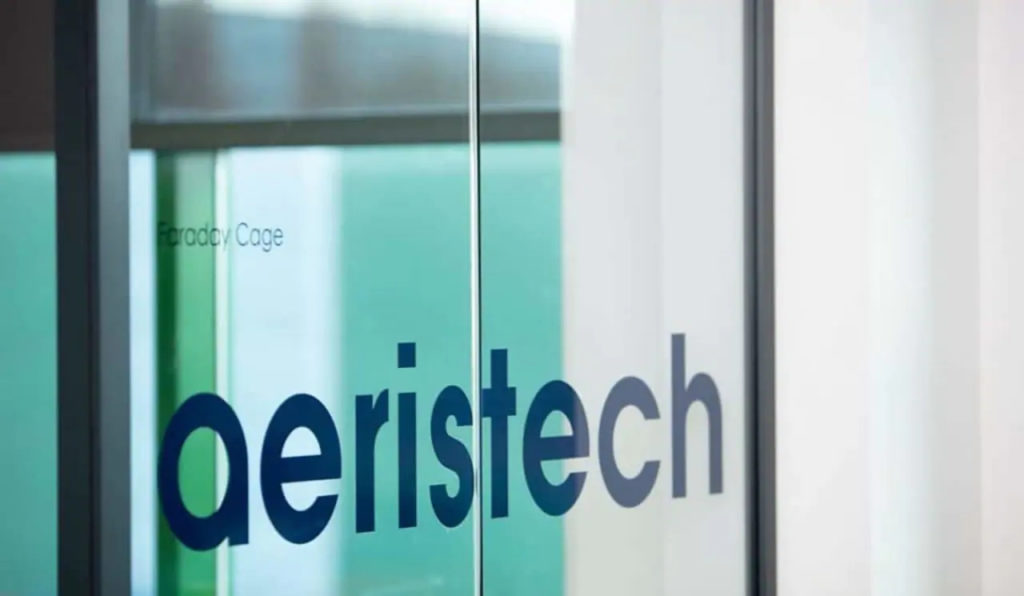
How is Aeristech contributing to delivering solutions for clean applications?
Basically, our efficiency is achieved by reducing the power that would be otherwise wasted. The applications in hydrogen are emission-free, especially if the hydrogen is generated by renewable energy. In internal combustion engines, we enable them to be downsized. This is translated into a reduction in emissions while delivering equivalent power.
Our technology helps enable fuel cells as a sensible power source for vehicles in the future. Our projects in aerospace are going to help drive towards reducing emissions in the aerospace industry, which we believe is considerable at the moment.
The maritime sector is looking for alternative fuels to reduce carbon emissions. Can you tell us more about the applications of your products in the maritime sector?
At the moment our products are being deployed in passenger cruise ships. At Aeristech, we see hydrogen fuel cells as a way of the maritime industry reducing its emissions, especially when they are coming into ports which have emissions regulations. I guess the high seas are where corporate responsibility will have to play more of a role due to the lack of regulations.
If the industry is going to invest in hydrogen fuel cells for coming into ports, then why not change to that for the full journey, especially as the costs come down.
What are the next challenges for Aeristech?
Our challenge is getting air bearings working. This is also the same challenge that all of our competitors face because it is the same technology. There’s nothing novel because air bearings have been around quite a while. The challenge is to get them to work in an environment where there is a shock load, which they don’t like of course.
“We are quite excited about it because air bearings, coupled with our Power electronics method, can lead to some very power-dense devices in the next couple of years.”
What would you like your contribution to be to the industries you are working with? What would you like to be your role in the current decarbonisation and energy transition efforts?
We want to be seen as the company that increases the range and efficiency of the hydrogen-powered vehicle. We see ourselves as a key to increasing efficiency and the range of a car, or a truck. In a hydrogen fuel cell vehicle, the compressor is the biggest, single parasitic loss of energy. So if you increase the efficiency of the compressor, it makes a big difference in overall efficiency.
“In other words, we would like to be seen as a company at the forefront of increasing the whole efficiency of fuel cells and hence reducing global emissions.”
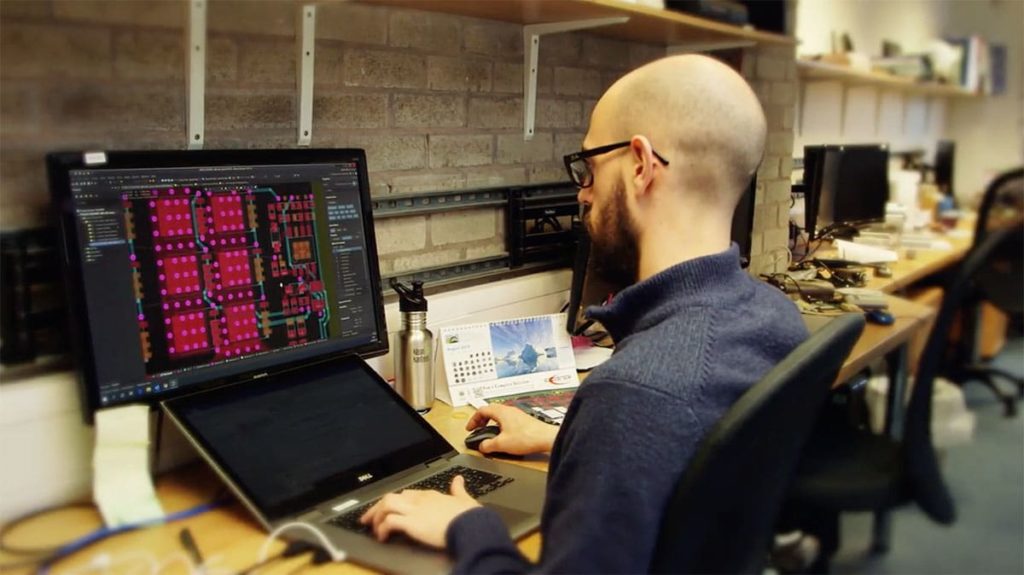
How do you see the fuel cell vehicles industry is evolving in the next five years?
Over the next five years, the market for fuel cell vehicles will start coming around. We see it more in the fleet vehicle market. Then, perhaps over the next five to ten years, we will start seeing the adoption in passenger vehicles. One of our customers thinks that they’re going to be shipping 100,000 units per annum by 2023. If it happens it will be transformative.
“For us, it is important that when fuel cells are deployed in passenger vehicles, they perform and behave similarly to what people are used to.”
When the electric cars first became mainstream there was a perception that electric vehicles were very soft and not very fun to drive. Then Tesla came along and really showed a different way of what electric vehicles could do. It would be quite good to be part of that on the fuel cell side, to show that fuel cell vehicles are cars that perform as expected and that are fun to drive.
What do you think is going to be the first automaker to launch a fuel cell vehicle that will meet the market expectations? There are many challenges including infrastructure, performance, look and feel.
Nikola has a fuel cell truck that can deliver from 0 to 60 MPH in just 2.4 seconds. That is impressive.
On the passenger side, one of our customers in Asia is likely to be at the forefront. Additionally, the required infrastructure for hydrogen vehicles is being developed faster in Asia than anywhere else.
How does Aeristech see the hydrogen industry evolving over the next few years?
The industry is going to have rapid growth. In the financial markets, companies involved in hydrogen have got sky-high valuations so the public markets are pumping money into them. Governments, on the other hand, are funding development and infrastructure. So we think it’s a great period of growth for the hydrogen industry.
The UK has recently announced that from 2030 it is going to ban the sale of all petrol and diesel-powered vehicles, which should hopefully drive the development of fuel cell vehicles even faster. We think that in the next five years we are really going to see hydrogen fleet vehicles. That seems like the most obvious way of getting around the infrastructure problem.
What are the main advantages of fleet vehicles transitioning to hydrogen?
Fleet vehicles, buses and material handling are likely to be completely taken over by hydrogen vehicles because they all return to base, so filling infrastructure isn’t as big a challenge, and on the material handling side you don’t want pollution inside warehouses, whereas batteries have long charge times. With hydrogen vehicles, you can fill up the tank in five minutes or less and get going again. So that results in an an increase in productivity.
Why do you believe Aeristech’s products are important for the development of a competitive hydrogen economy?
We are enabling the adoption of hydrogen right through all transport: rail, marine, aerospace, automotive, material handling and off-highway, it is all adopting hydrogen. Furthermore, we see a chance for rapid growth over the next coming years.
We are also very excited to see what the combination of air bearings and our latest power electronics will mean in this field. And where that goes in the next five years.
Featured in this Talk
 |
 |
Duncan KerrChief Executive Officer |
Luke ReadHead of Engineering |
We want to thank Duncan and Luke for their time and insights into how they’re innovating and pushing the limits of what a Hydrogen Powered vehicle can do today and will do tomorrow. Their technology has such a broad range of applications, and we look forward to learning more about them in the near future.
For more information related to Aeristech and to learn more about their products and solutions, you can visit their website at: https://www.aeristech.co.uk/
Reporting for FuelCellsWorks – Magnolia Tovar Chacon and Alex Labarces

Magnolia Tovar Chacon, Lead Contributor
 Magnolia Tovar is a Chemical Engineer with 18 years of experience in the energy sector in more than 20 countries. She has extensive experience in consulting, business development and management of large consulting projects and is also a certified Ontological Coach.
Magnolia Tovar is a Chemical Engineer with 18 years of experience in the energy sector in more than 20 countries. She has extensive experience in consulting, business development and management of large consulting projects and is also a certified Ontological Coach.
Magnolia has a passion for creating awareness about renewable energy and the development of a hydrogen global economy.
Read the most up to date Fuel Cell and Hydrogen Industry news at FuelCellsWorks




